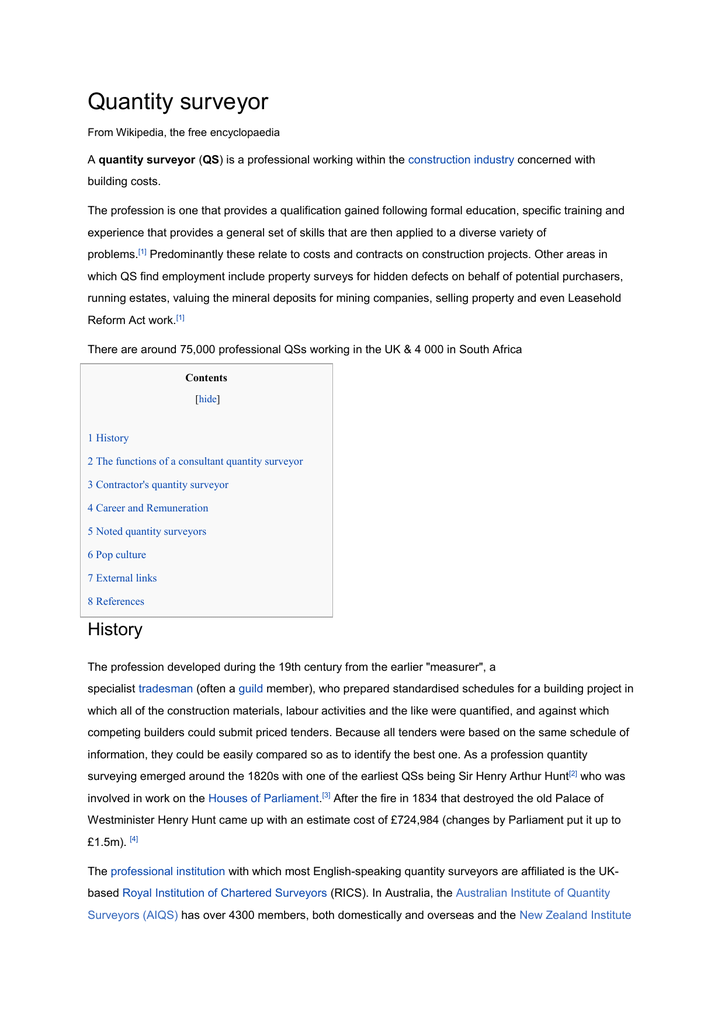The profession of quantity surveying has evolved significantly over the years, with advances in technology and changes in the construction industry leading to the development of new roles and responsibilities for quantity surveyors.
Traditionally, the primary role of a quantity surveyor was to measure and cost building works. This involved the creation of detailed drawings and specifications, and the preparation of tenders and contracts for construction projects. Quantity surveyors also played a key role in the management of construction costs, ensuring that projects stayed within budget and were completed on time.
As the construction industry has grown and become more complex, the role of the quantity surveyor has evolved to meet the changing needs of clients and contractors. Today, quantity surveyors are involved in a range of activities beyond cost management, including project planning and control, risk management, and dispute resolution.
One significant development in the profession of quantity surveying has been the increasing use of technology. In the past, quantity surveyors relied on manual methods for measurement and cost estimation, such as the use of paper plans and calculators. Today, however, quantity surveyors have access to a range of digital tools that can significantly streamline their work. These tools include computer-aided design (CAD) software, project management software, and estimating software, which allow quantity surveyors to create accurate and detailed estimates quickly and efficiently.
Another key development in the profession of quantity surveying has been the increasing focus on sustainability and environmental responsibility. As the construction industry has become more aware of the impact of buildings on the environment, quantity surveyors have had to adapt to new regulations and requirements related to energy efficiency and sustainable construction practices. This has led to the development of new roles for quantity surveyors, such as sustainability consultants and carbon footprint analysts.
Overall, the evolution of the profession of quantity surveying has been driven by advances in technology and changes in the construction industry. As the role of the quantity surveyor has expanded and diversified, they have become an increasingly vital part of the construction process, providing valuable expertise and support to clients and contractors.






